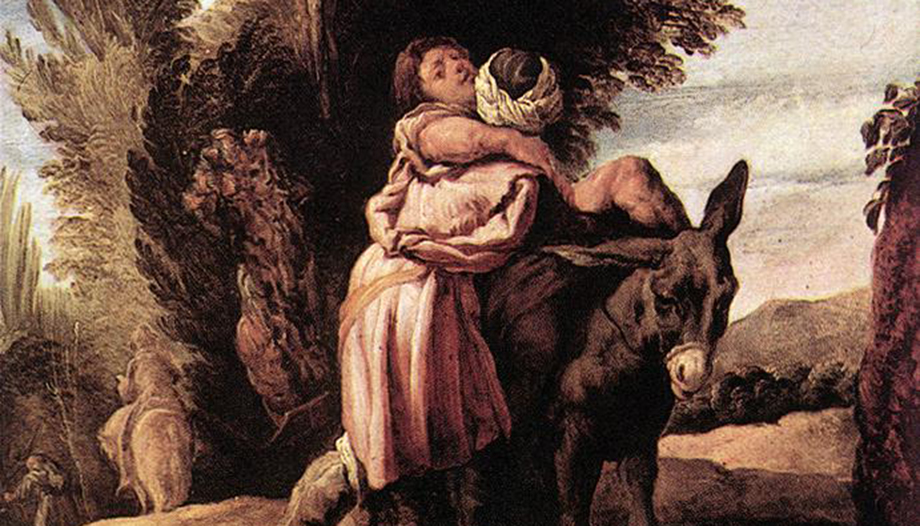Moses tells the people that it is possible to convert wholeheartedly to God and fulfill his precepts. Psalm 18 accompanies this assurance by proclaiming that God's precepts are right and gladden the heart.
The hymn to the Colossians tells us that Jesus "is the image of the invisible God", that "all things were created by him and for him."which "he is before everything", "He is also the head of the body: of the Church."
Therefore, what Jesus commands also has the value of God's precepts, which can be observed. Thus, the teacher of the law who speaks with Jesus can put into practice what Jesus tells him: "Go ahead and do the same." You too can live like the Samaritan.
Thank you, young teacher of the law, for your question, which was the occasion to give us the parable of the Good Samaritan. You put Jesus to the test by asking him what to do to inherit eternal life.
Jesus involved you in the answer and you answered well, quoting both the commandment to love God and to love your neighbor. But that was not enough for you and you brought up the captious rabbinical debate about who should be considered a neighbor to be loved. A question to which your colleagues gave very restrictive answers.
Jesus, in order to leave an everlasting teaching and to eradicate misconceptions, answered you by telling you a story. At the end of which he totally changed your question. He did not add new categories to his list of who is your neighbor in the passive sense: whom you would then be obliged by the law to love. He changes everything in the question he asks you: who has been close, in the active sense, to the man wounded by the thieves? You have followed Jesus' story, you have changed your perspective with his question. "He who practiced mercy on him." You have answered well, even if you have not dared to call him by his name: it was the Samaritan, the heretic, the infidel, the one who does not live the Law.
He looked at the wounded man; he had compassion; he approached. He was not deterred by the danger of the blood that would make him unclean according to the law. He gave him help: oil and wine, medicine and sacraments. He did not fear that his horse would be stained with blood, becoming impure. He changed his travel plans. He asked the innkeeper for help: he could not do it alone. He did not go immediately to his business and his family: he stopped to give him first aid, to reassure him with his words, to change his bandages with tenderness. Only then did he ask the innkeeper to take care of him: he paid him and he will pay him.
The innkeeper was also close to the wounded man. Now, master of the law, destroy the list of who is your neighbor, your horizon has become universal: with everyone you will be able to act like the Samaritan and the innkeeper, especially with the most needy. Courage: do the same!
The homily on the readings of Sunday 15th Sunday
The priest Luis Herrera Campo offers its nanomiliaa small one-minute reflection for these readings.








